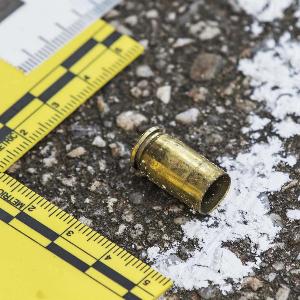Restrictions rein in gun violence
2 Jan 2019
Legal restrictions on the possession of firearms reduce the incidence of murder and suicide in Western European countries, according to a new study done by political scientists at LMU.
2 Jan 2019
Legal restrictions on the possession of firearms reduce the incidence of murder and suicide in Western European countries, according to a new study done by political scientists at LMU.

© dpa
The issue of gun control has long been the subject of passionate debate, and every new killing spree or school massacre in the US once again prompts the question of how violence perpetrated by means of guns in private hands can best be curbed. Would more restrictive gun laws really lessen the frequency of such incidents and diminish rates of murder and suicide? Studies undertaken in the USA indeed suggest that they would.
What about the situation in Western European countries in which the use of firearms by private individuals is much less prevalent and gun control is nothing like as contentious an issue as it is in the US? Do more stringent controls on the acquisition and possession of firearms in Western Europe have a positive effect here? Do they ensure that fewer people kill others or themselves with handguns? The answer is most certainly yes, says a new investigation undertaken by Dr. Steffen Hurka and Professor Christoph Knill of the Geschwister Scholl Institute of Political Science at LMU.
Hurka and Knill studied the specific regulations governing the possession of firearms by private persons in 16 European countries, and compared them to the rates of murder and suicide by shooting and other means. As Steffen Hurka explains, in order to ensure that the comparisons were valid and could be reliably related to one another, the authors first computed a gun-control index for each country in their sample. Using an arithmetical procedure, they ranked the quality (stringency) of the firearms legislation in these countries on the basis of a variety of factors. Is the possession of firearms generally forbidden, generally allowed or permitted only under specific conditions? What personal qualifications must a would-be gun-owner possess in order to legally purchase such a weapon? What other obligations does the law place on persons who apply for a gun license? Must the weapon be stored under lock-and-key in special cabinet? The resulting ranking revealed that gun laws are especially strict in the UK, while Finland and Switzerland have the most liberal gun-control regimes. The LMU researchers then compared the scores in their gun-control index with the numbers of shooting deaths during the period from 1980 und 2010. The analysis showed that more stringent gun-control laws, i.e. less easy access to weapons, were clearly correlated with a significant reduction in rates of murder and suicide. Furthermore, this correlation applied not only to deliberate killings perpetrated with firearms, but to all cases of murder and suicide.Regulation & Governance 2018